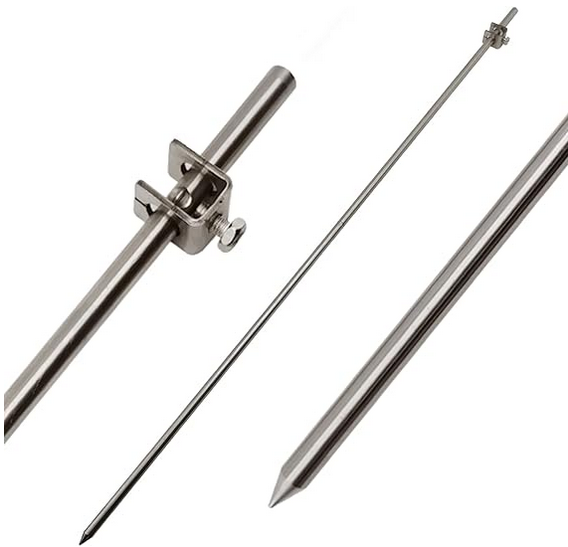
Are Aluminum Fences Conductive?
Most people know that steel fences are conductive, but the same can’t be said for other metals.
This means that if you are considering installing an aluminum fence, you might very well be wondering if your new fence will be conductive and, if so, what you can do. Read on to find out!
What Does It Mean If Your Metal Fence Is Conductive?
The first thing you need to know about whether aluminum fences are conductive is what conductivity is.
Conductivity is the ability of a metal fence (or anything else) to conduct electrical current. Or, in simpler terms, it’s the ability of the material to allow electricity to flow through it.
Different things have different levels of conductivity, meaning it’s either easier or harder for electricity to flow through them, and that’s true for fences, cars, animals, people, trees, and anything else that might come into contact with electricity.
Electricity is always trying to get to the earth or complete a circuit, and some things, things like fences, trees, and people, become part of that circuit. That’s why it matters whether your metal fence is conductive.
So, Is an aluminum Fence Conductive?
As we’ve now established, nearly everything is conducive to a greater or lesser degree. Some things conduct electricity well, while others do not.
Unfortunately, aluminum is one of the things that does conduct electricity well. In fact, many electric fences use aluminum wire as the fence wires.
What that means is that if your aluminum fence is accidentally exposed to electric current, the fence structure could become electrified. This might happen temporarily if it’s hit by a lightning strike, but it could also happen if a powerline touches your fence or by some other accidental connection to the power in your home, yard, or garage.
How to Prevent aluminum Fences from Becoming Electrical Conductors
Realizing that your aluminum fence – or any metal fence, for that matter – could potentially become a conductor of electricity is quite scary. Fortunately, there are many things you can do to keep your family, pets, and passersby safe:
- It should go without saying, but you should never touch any metal fence in a thunderstorm -if any part of the fence is struck by lightning, it will travel down the whole fence!
- Always be extra careful when you’re attaching any fence or gate to a wall that might contain electrical cables – even if the power seems unaffected, a screw or bolt that has damaged the sheathing on the cables could still conduct electricity into your aluminum fence
- If you are installing any fence – including aluminum fences – on a site that might have electrical “leakage” into the ground, like near a substation, you should always include grounding in your fence design
Recommended Product: Fence Grounding Kits
How Do You Ground an Aluminum Fence?
Grounding metal fences, including aluminum fences, means ensuring that every section is properly connected so that electricity can flow from one panel to another and then giving that electricity somewhere to go.
Often, that means using cables and clamps to connect separate panels (because relying on the contact between the components is not precise enough for grounding) and then connecting those cables to grounding rods or to an underground grounding mat. The latter usually applies to substation fencing and similar, but you can buy grounding rods for fencing from most electric fence suppliers.
Why Do You Need to Worry About Your Aluminum Fence Conducting Electricity?
The last thing you might be wondering about aluminum fences conducting electricity is why you might need to worry about it. There are several reasons.
First, and most important for most homeowners, if your fence were to become accidentally electrified, your family, pets, and anyone else who touches the fence might be at risk of serious injury or death.
But there’s also an issue of legal liability, whether you’re installing a fence around a private home or in a more commercial setting.
If your fence, whether by design or accidentally, were to injure or kill someone or cause serious property damage, there’s a good chance you would be legally liable for that.
So, when you’re planning to install any metal fence, including aluminum fencing, always be sure to remember that it can be conductive and that you and your fence installation company need to take sufficient precautions to keep everyone safe.



